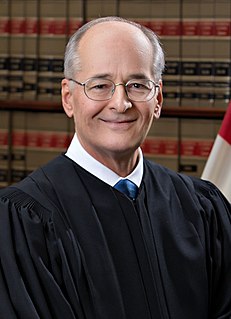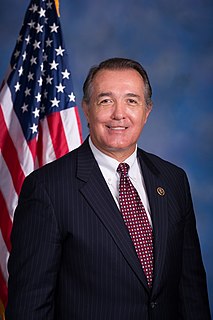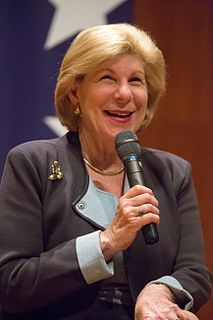A Quote by Sam Ervin
There is nothing in the Constitution that authorizes or makes it the official duty of a president to have anything to do with criminal activities.
Quote Topics
Related Quotes
The first essential responsibility of the state is control of the market-place: there must be some official charged with the duty of seeing that honest dealing and good order prevail. For one of the well-nigh essential activities of all states is the buying and selling of goods to meet their mutual basic needs; this is the quickest way to self-sufficiency, which seems to be what moves men to combine under a single constitution.
In existing criminology there are concepts: a criminal man, a criminal profession, a criminal society, a criminal sect, and a criminal tribe, but there is no concept of a criminal state, or a criminal government, or criminal legislation. Consequently what is often regarded as "political" activity is in fact a criminal activity.
The president does not have power under the Constitution to unilaterally authorize a military attack in a situation that does not involve stopping an actual or imminent threat to the nation. As commander in chief, the president does have a duty to protect and defend the United States. In instances of self-defense, the president would be within his constitutional authority to act before advising Congress or seeking its consent.
The Constitution is constant. There's not one elected official who has the power to change it. There is a way to amend the Constitution, and the Constitution spells out the procedures that must be taken to change it. Presidents cannot. Now, I know this is gonna shock many of you in the low-information community.
I think probably, you know, from my perspective, the folks who say a sitting president cannot be indicted have the better of the argument that the president can't be indicted - put, you know, through a criminal trial while he is president - and that the proper way to do it is to impeach him first, remove him, and then seek criminal prosecution.
A bureaucracy is sure to think that its duty is to augment official power, official business, or official members, rather than to leave free the energies of mankind; it overdoes the quantity of government, as well as impairs its quality. The truth is, that a skilled bureaucracy is, though it boasts of an appearance of science, quite inconsistent with the true principles of the art of business.
The complete independence of the courts of justice is peculiarly essential in a limited Constitution. By a limited Constitution, I understand one which contains certain specified exceptions to the legislative authority. Limitations of this kind can be preserved in practice no other way than through the medium of courts of justice, whose duty it must be to declare all acts contrary to the manifest tenor of the Constitution void. Without this, all the reservations of particular rights or privileges would amount to nothing.

































